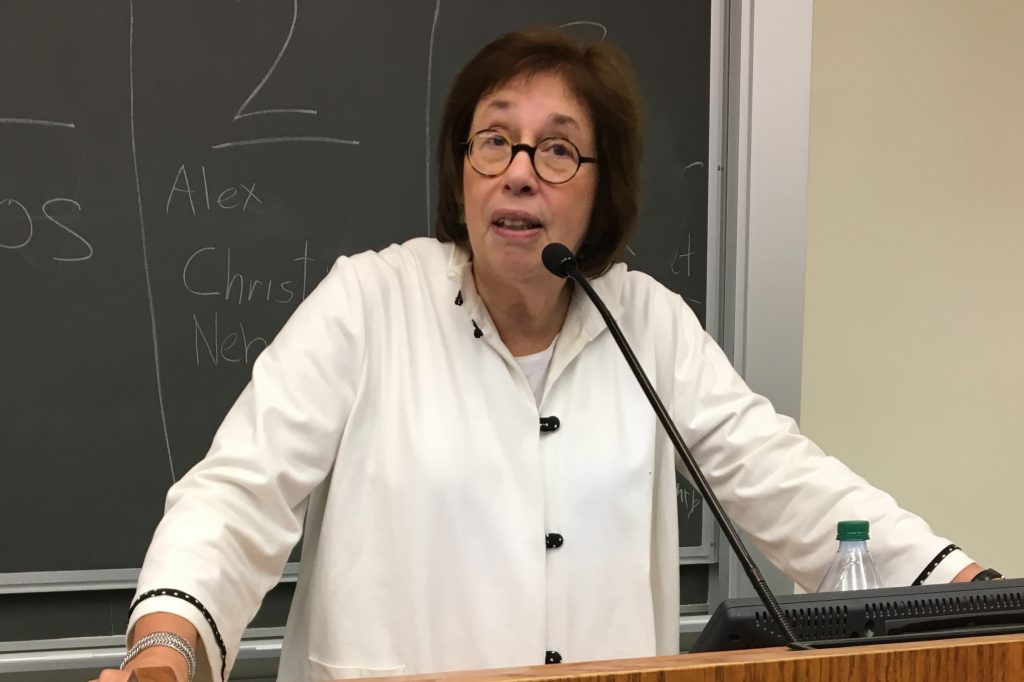At this critical juncture in the history of the Supreme Court, the future of the progressive constitutional movement is at stake, Linda Greenhouse, former New York Times reporter and manager of the NYT SCOTUS blog, said during a recent visit to BC Law.
The Pulitzer Prize-winning journalist spoke of her experience covering the Supreme Court and answered students’ questions regarding its uncertain future after the death last winter of Justice Antonin Scalia. The event was sponsored by the American Constitution Society.
Greenhouse said that the unprecedented decision of the Senate to not even hold hearings in the Judiciary Committee on the nomination of Merrick Garland to replace Scalia is indicative of today’s highly political environment and could have an impact on years of effort to achieve the “positive rights” inherent in the US Constitution.
The Senate’s tactic effectively postpones the appointment of the next justice until after the election. If the next president has the luck of Richard Nixon, who got four appointments in barely three years, Greenhouse observed, he or she might have the chance to change the entire course of the Court’s direction for decades to come, depending on whom they nominate, and how the American people voice their opinions through their vote.
The Knight Distinguished Journalist in Residence and Joseph Goldstein Lecturer in Law at Yale Law School, Greenhouse provided context for her perspective as articulated in her new book, The Burger Court and the Rise of the Judicial Right, which she coauthored with Michael J. Graetz.
The Burger Court (1969-1986), she said, was where “the rise of the judicial right” began in earnest. By contrast, at the time of the Warren Court (1953-1969), “there was a strong progressive movement in law schools propelled by, liberal-movement professors and lawyers,” who wanted to subject poverty to the same level of judicial scrutiny as subjects like race received, and to make education a fundamental right, she said.
The primary goal of the progressive legal movement, Greenhouse explained, “is to at least partially transform the American constitution into a document of positive rights that guarantee fundamental protections of a free society.” As things stand now, she said, “we don’t have a constitution of positive rights…but instead one of negative rights, stating that ‘the government shall not.’”


